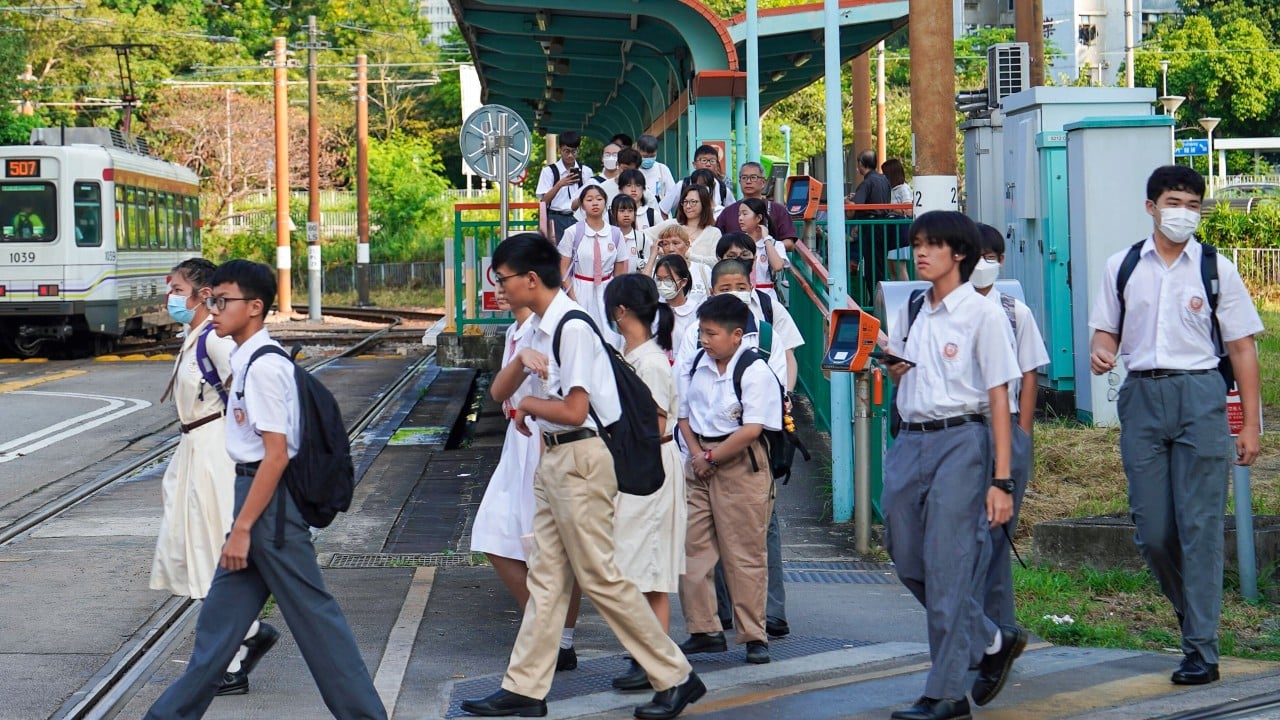More than 280 Hong Kong pupils have been identified as being at higher risk of suicide and referred to social workers, the education chief has revealed.
Secretary for Education Christine Choi Yuk-lin also said on the first day of the academic term on Monday that fewer than half of the city’s local primary and secondary schools had signed up for a newly launched mental health charter.
Hong Kong’s youth mental distress has remained an alarming concern, with the city’s teenage suicide rate among the highest in the developed world, according to a survey. The number of suspected suicide cases among primary and secondary school pupils increased in the past school year.
After visiting a secondary school in Tuen Mun, Choi said the early identification of pupils at high suicidal risk or with mental health needs enabled timely access to professional counselling or treatment services.
More than 280 cases were reported as of the end of the summer holiday under the first stage of the “Three-Tier School-based Emergency Mechanism”, launched in December last year.
Another 120 students were classified in the second tier, she said, with schools referring the cases to an off-campus support network team organised by the Social Welfare Department. The mechanism was planned to run until the end of this year.

Asked if the Education Bureau would make it permanent to provide ongoing support to students, Choi said: “At this stage, we will communicate with schools to understand their needs and discuss with our staff the best way to help these students in need.”
Provisional data from the Hong Kong Jockey Club Centre for Suicide Research and Prevention at the University of Hong Kong showed the suicide rate for those aged 15 to 24 had risen to 12.2 deaths per 100,000 people from 6.2 between 2014 and 2022.
Japan, South Korea and the United States were the highest, with a suicide rate as high as 16.8 per 100,000 people.
Authorities have attributed the rise in youth suicides to factors such as the pandemic and the hurdles students faced after the city’s return to normality.
In April, the bureau also launched the 4R Mental Health Charter, which focuses on rest, relaxation, and building relationship skills and resilience in pupils. As of July, 420 out of 927 primary and secondary schools have enrolled in the voluntary charter, taking up 43 per cent of the total schools, Choi said.
“I know different schools have their individual mental health support programmes, I believe as those programmes consolidate, more schools would enrol in this 4R programme,” she said at Tsung Tsin College, one of the schools that signed up for the charter.
A survey conducted by the Baptist Oi Kwan Social Service between November 2023 and April 2024 found that 20 per cent of the 1,600 secondary school respondents had symptoms of anxiety and depression.
Among the major causes of stress were academic studies and concerns about perception of personal appearance.
Thomas Fung Chak-tong, a social worker in charge of the NGO’s school team of mental wellness service for children and youth, said many students were unwilling to seek help for fear of being labelled and their parents being called to the school.
He noted that more than half of the students judge themselves harshly when they underperform, or when the results did not meet their expectations.
“This mindset has a strong correlation with anxiety and depression symptoms. Students should learn to be less hard on themselves and set a plan to achieve their target step-by-step, but not hoping to do it overnight,” he told a radio programme.
Schools, meanwhile, could let students take up some posts of responsibility on campus, such as library perfect, to help them build a sense of belonging and resilience, he said.
Michelle Chan Yuen-tung, a counselling psychologist at the Hong Kong Red Cross, said more young people reached out for mental health support before the start of the school year.
“They prefer seeking professional help in an out-of-school context instead of turning to their families or social workers, because they want to speak with a stranger who has a more neutral perspective,” Chan said on the same radio programme.
Chan said those struggling with mental health often adopted a “fixed mindset”, focusing on outcomes, while a “growth mindset” values the learning process which would help cope with stress.
If you have suicidal thoughts, or you know someone who is, help is available. For Hong Kong, dial +852 18111 for the government-run “Mental Health Support Hotline” or +852 2896 0000 for The Samaritans and +852 2382 0000 for Suicide Prevention Services. In the US, call or text 988 or chat at 988lifeline.org for the 988 Suicide & Crisis Lifeline.
For a list of other nations’ helplines, see this page.


